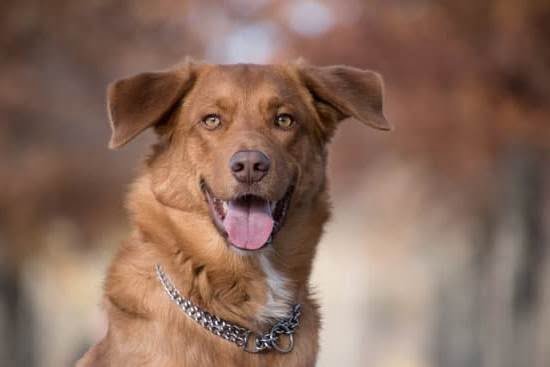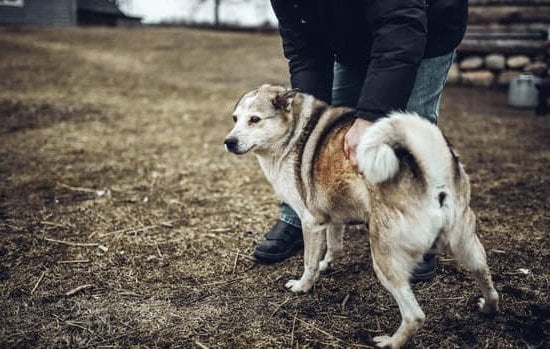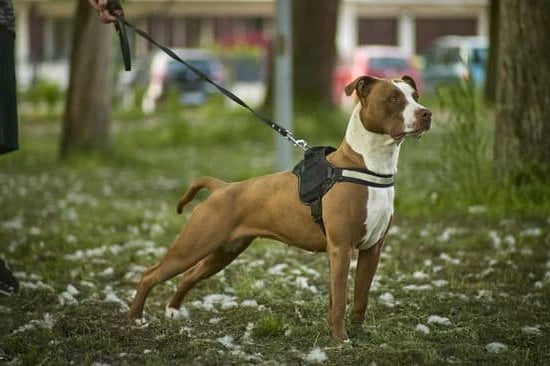Introduction
Truffle dog training is the art of teaching a dog to hunt for and retrieve culinary truffles. Truffle hunting typically takes place in forests, with the handler on one side of an area and their specially trained truffle-seeking pooch leading the way. The animal’s heightened sense of smell is used to detect the subterranean snack, often involving sticks or prods to aid in the retrieval process.
Once a patch of truffles is found, the handler can train the dog how to properly dig and retrieve them without causing too much damage. Just as importantly, they will also teach cues such as “leave,” “stay” and “come” on command so that the dog remains in control and safe at all times. The dogs can be taught special commands to indicate when they have discovered a truffle such as barking or pawing at the ground. Training protocols are devised with an animal-first approach, making sure any retrieval process respects the safety needs of both handlers and their canine companions.
In addition to learning basic obedience skills, specialized exercises such as specific scent recognition drills are frequently used in truffle dog training too. The purpose-bred canines must demonstrate enthusiasm for engaging in scat detection games; thus, scent work practice helps embed positive behaviors across breeds into muscle memory prior to bringing them into fieldwork settings for their main job duties. Proper socialization and appropriate agility activities also improve confidence levels which aids in making progress more quickly and efficiently overall. By taking time to structure each lesson around a specific goal from start to finish, handlers create lasting impressions that reinforce successful exploration habits during questing treks through woods or other natural landscapes.
Benefits of Truffle Training for Dogs and Their Owners
Truffle dog training is an excellent way to bond with your pet while increasing their intellectual skills. It teaches dogs how to use their noses to detect the presence of truffles in the ground, an activity that is both fun and rewarding for them. Furthermore, it enhances their alertness and attention span and reduces anxiety due to its recreational nature. Additionally, truffle hunting serves as a great physical exercise when done in a controlled environment because it requires a lot of running and jumping around. This increases agility, coordination, and endurance levels in dogs.
For owners, truffle dog training gives them purposeful activities to share with their furry friends while feeling useful as well. It can be beneficial not only on an individual level but also larger ones since often owners unite themselves with groups or clubs aiming towards truffle hunting together and organizing events such as competitions between dogs of all breeds. Moreover, participating in such activities places humans and animals into closer contact with nature since the hunt generally takes place in natural areas or forests where truffles grow wild and abundant. Such encounters help owners develop respect for nature while providing essential conservation aspects that ultimately benefit the environment by protecting these species from overharvesting. Furthermore, they take pleasure in obtaining valuable mushrooms through an enjoyable process that could eventually lead to some financial gain once harvested successfully from private properties if allowed by law conditions.
Understanding the Principles Behind Truffle Dog Training
Truffle dog training is the specialized technique of teaching dogs to locate and extract truffles, a type of subterranean fungus. The trained dogs are able to distinguish between different types of truffles, helping their owners locate and harvest valuable fungai. The principles of training involved revolve around using positive reinforcement techniques to reward the dog when they have correctly identified the particular location or type of truffle desired by their handler.
To begin training a truffle dog, handlers often use verbal commands such as “smell” or “sniff” to encourage their dogs to identify the target scent. Once the dog has been successful in identifying a truffle, it will be given praise and rewards in the form of treats or special toys. Dogs that are consistently rewarded for locating and extracting truffles will soon begin associating the process with good things, reinforcing their understanding in a timely manner.
Training also includes teaching safety procedures such as avoiding any locations with sharp objects or toxic plants in them. Truffle dog handlers should also practice proper hygiene when dealing with fungi; this means frequently washing hands and brushing off any dirt collected from truffles so that contamination is avoided at all times. Communicating calmly and confidently while working with a truffle dog can also help maintain an effective relationship between handler and animal. Additionally, regular rest periods must be provided for both mental refreshment and physical recovery between hunt sessions.
Tips for Mastering Truffle Training
Truffle Dog Training is an exciting and rewarding activity for both you and your pup. It’s not only a great way to bond with your pup, but it also develops your dog’s intelligence, while they get to enjoy the taste of the truffles! To get the most out of your truffle training sessions, here are some tips that you should keep in mind:
First and foremost, create a positive learning environment by familiarizing yourself with the area first. Use rewards-based training techniques such as treats before and after each successful search. This will give your dog something to look forward to during the session. Additionally, ensure that your pup wears a command collar while they are participating in your training session(s). This will help keep them from wandering away from you in search of their favorite snack.
Secondly, establish a routine for truffle hunting; this includes teaching basic commands such as ‘hunt’ or ‘go find’. Additionally, set clear expectations for them in order to determine if they have found a truffle or not. If you can achieve these steps, then you’ll be better equipped to handle more complicated tasks such as tracking scents throughout an area and working on extended searches over multiple days. Lastly, make sure to take frequent breaks and praise them whenever possible along the journey – this will balance mental stimulation with physical activity which is essential for optimal success. With these tips in mind, you’ll be mastering truffle dog training in no time!
Health Benefits of Truffle Training for Dogs
Truffle training for dogs not only provides them with mental stimulation and physical activity, it can also help to promote their overall health and wellbeing. Not only does truffle hunting encourage a dog’s natural scenting ability for longer spans of time, but the physical exercise associated with the task helps to keep muscles toned, strengthen bones, and improve cardiovascular health. The mental stimulation can also help to reduce stress levels and diminish separation anxiety in dogs left alone while owners are away. Regular truffle training could potentially result in sharper senses, improved behavior, more energy and better bonding between dog and owner. Furthermore, due to the highly-reinforcing nature of finding truffles during the hunt, positive reinforcement can reinforce good behaviors making truffle training an easy way of engaging your pet without enduring dull or repetitive drills.
Solving Canine Behavioral Issues with Truffle Training
Truffle dog training is an innovative technique that is used to help resolve behavioral problems in dogs. It utilizes the natural scent of truffles, the tuberous fungi found sporadically in forests and pastures around the world, as a positive reward for desired behaviors. This approach takes advantage of a canine’s highly developed sense of smell and its own strong desire to find and eat truffles, making it an effective tool for getting and keeping desired behaviors.
When using truffle dog training, owners should begin by introducing their dog to a truffle scent while they are engaging in a calming activity together, such as going on a walk or playing with another friendly dog. As they get closer to the source of the scent, owners should reward their furry friends with food treats or gentle praise when they display good behavior – this will reinforce desired behaviors so that eventually, responding appropriately to the presence of truffle odors becomes second nature. In addition to reinforcing wanted behaviors through positive reinforcement techniques like these, truffle dog training also embraces education methods like clicker-training or using verbal cues for instilling recognition tests into problem solving routines. By gradually increasing difficulty level when teaching new concepts and understanding reactions regarding environmental triggers such as passing cars or loud noises incorporating some form of behavioral learning into daily routines can have remarkable effects on overall well being and behavior management over time.
How to Find a Professional Truffle Dog Trainer
Finding a qualified professional truffle dog trainer can be intimidating. After all, you want to ensure that your pup is safe and will learn the proper techniques. Here are some tips on how to find a certified truffle dog trainer:
1) Ask fellow truffle hunters or other local pet owners for recommendations. Speak to those who have personal experience with the trainer, and make sure they were satisfied with the training their pup received.
2) Do some research online; look at the websites of trainers in your area, read through testimonials from previous clients, and reference any certifications or qualifications the trainers have for training truffle dogs.
3) Contact potential trainers directly, either by email or telephone, and ask them some specific questions about their qualifications and approach to training truffle dogs. Make sure you feel comfortable working with them before scheduling a session.
4) Finally, once you’ve found an acceptable candidate meet him/her in person for a consultation where you can further inquire about his/her qualifications and observe how he/she interacts with your pup so that you can gauge its reaction then decide whether you feel comfortable entrusting it with this person’s expert training.
Treat Recommendations for Truffle Training
Truffle dog training can take many months to accomplish, and it is essential for owners to provide the right treats for their canine to make the process easier and safer. Most truffle specialists recommend specific treats and foods that will help reinforce positive behaviours as well as helping to stimulate your dog’s sense of smell. For example, raw meat or his regular kibble can be used as reward treats during your training sessions. Additionally, mixing in a bit of cheese or yogurt (no added sugar) can add another layer of reward which again helps reinforce those positive behaviours.
In addition to those basic ingredients, more specialized treats are available which can further stimulate the olfactory pleasure centers in the canine brain and aid in your truffle dog-training goals. Some of these include: dehydrated meats such as beef or chicken, freeze-dried liver slices, crunchy coconut chips, freeze-dried berries or veggies (such as carrots), salmon jerky, and organic blueberry/flaxseed biscuits from specialty pet stores. Additionally, some owners find that adding a few drops of fish oil on their chosen snacks helps attract the truffle scent even more! Lastly, given their highly sensitive noses when working with truffles, you should avoid using smelly store-bought treats such as those made with artificial additives like bacon flavour or garlic — these can instead distract your beloved canine from picking up on subtler scents like that of a valuable truffle mushroom!
Essential Gear for Truffle Dog Training
Truffle dog training requires the right gear in order to be successful. Just like any other kind of dog training, specific tools and supplies are needed to ensure that the process runs smoothly, safely, and efficiently. The most essential gear for truffle dog training includes a harness and leash, treats and rewards, a whistle or marker for reward marking, a voice command system such as clickers or verbal comands, muzzles for safety, a mat or teaching platform where dogs can practice behaviors more easily and reliably, scent detection kits that contain the actual truffles so your dog has something to practice on in real life scenarios. Additionally, you may want to provide your truffle handling our coveralls or protective clothing during the process as they will be around sharp objects (trays) as well as manure that is often found in natural truffle habitats. Lastly, it’s important to have patience when it comes to training your dogs – not all canines learn at the same rate and recognizing this is important when determining how to structure their lessons.
Common Questions and Answers About Truffle Dog Training
Q: What is truffle dog training?
A: Truffle Dogs are special breed of dogs that are specially trained to hunt and locate truffles, a unique and prized type of fungi that grow underground in certain areas. These dogs use their sensitive noses to find the odor of truffles and return to their handler once they have located it. By providing rewards after finding the truffle, these dogs learn over time to spot them quickly and accurately. Truffle Dogs require intensive levels of care, as they can become stressed out or ill if placed in a stressful situation or left alone for too long. They must be well fed, given plenty of attention, exercise frequently, and closely monitored to ensure their health is always optimal. They also need regular veterinary check-ups in order to ensure any potential illnesses or diseases are found early on. Finally, specialized truffle dog training is necessary in order to ensure the dogs know how best to locate and identify the truffles with minimal disturbance or risk of damage or contamination.

Welcome to the blog! I am a professional dog trainer and have been working with dogs for many years. In this blog, I will be discussing various topics related to dog training, including tips, tricks, and advice. I hope you find this information helpful and informative. Thanks for reading!





